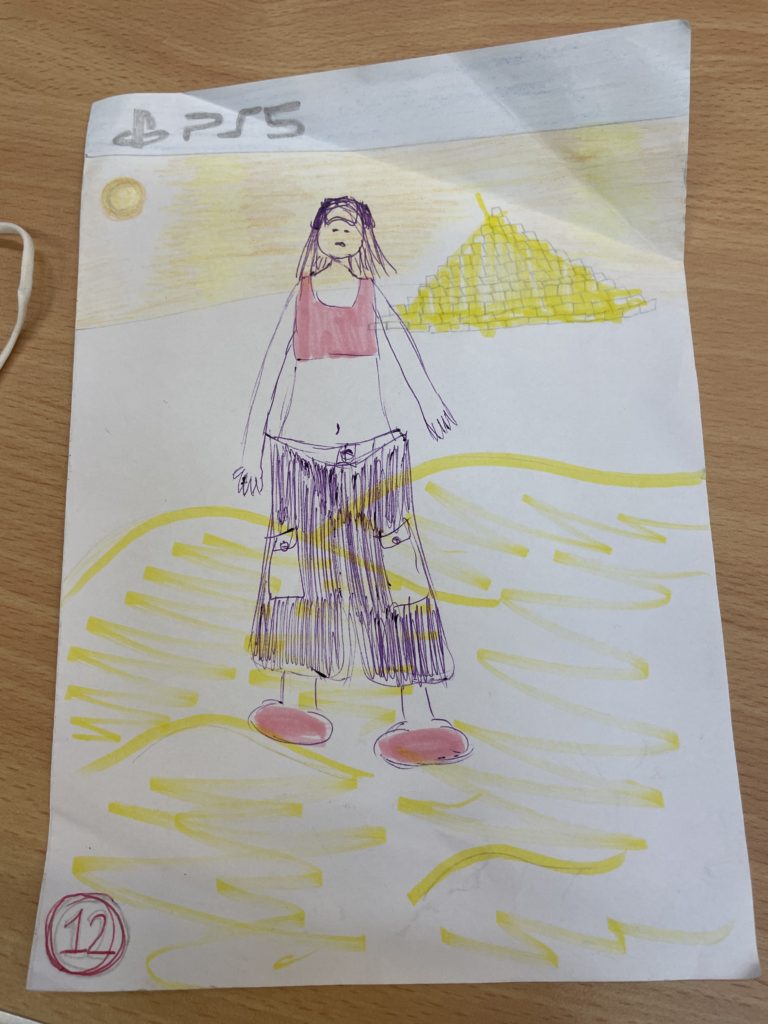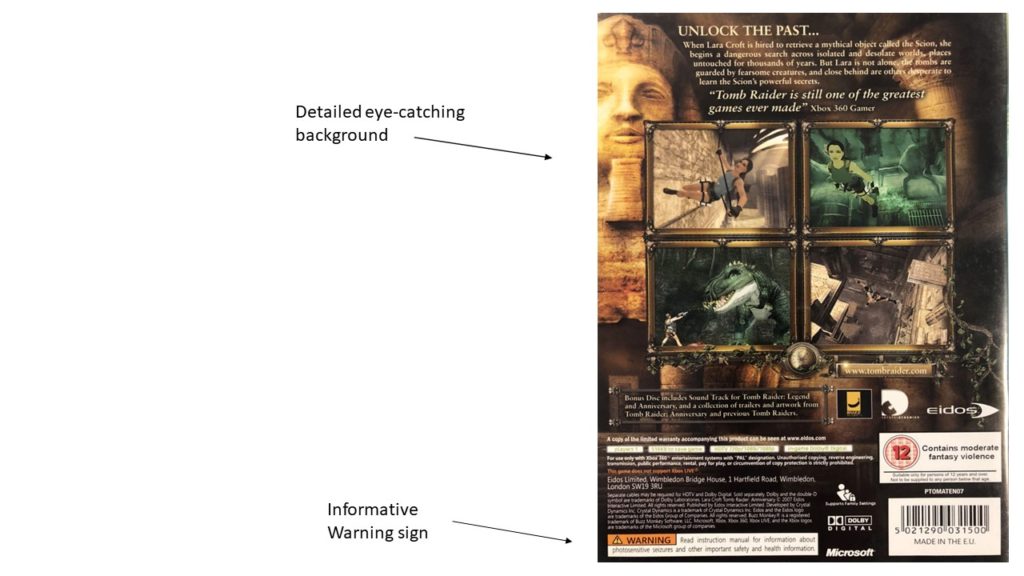
media banner


| FORMS | CHARACTERISTICS | EXAMPLES |
| NEWSPAPERS | – Small writing – Usually on paper – Mainly advertisement and the news | – The daily mail |
| SOCIAL MEDIA | – Communication – Young audience | |
| MAGAZINES | – Advertisement | – Vogue |
| T.V | – Ads in between – Visual | – ITV Sports |
| MUSIC VIDEOS | – Visual – Trends | – VIBEZ Da Baby |
| RADIO | – Audio – Music played | – BBC Radio |
| MOVIES/FILM | – Public – Usually in cinemas | – Endgame |
| ADVERTISING | – Marketing | – Billboard |
| VIDEO GAMES | – Personal unless online | – Fifa |
I utilised a male in my front cover for a reactionary response as it aggress and goes along with the idea that men are typically soldiers in games.
I produced a Safari Warfare Game and I created a dominant signifying image that was a masculine soldier that fits with the reactionary idea and stereotype that men are soldiers in war. This goes against Toril Moi’s analysis of the distinction between female, feminine, feminist categories of representation (1987). Only in my production there is a clear focus on masculinity.
Further to this I have exaggerated the muscular attributes of my character by adding armour, overexaggerated arms, legs and chest. I also added a fighter jet and a attack helicopter that displays the on going theme of war, putting them behind the character, signifying his strength as a male leader. In some ways this inverts Laura Mulvey’s notion of the male gaze in that my main character is there to be objectified and looked at, in the words of Laura Mulvey he is a character “establishing ways of looking and spectacle” (Mulvey, p. 883, 1999). However, the notion of the male gaze is quite distinct as it relates to the sexualisation of the dominant signifier, which is not the case for my character.
However, I don’t think this is a positive representation of masculinity as I personally believe that the idea of a strong, leading soldier always being a man is wrong and incorrect in the current world where woman are coming to power and serving in the army. Perhaps inhabiting a range of signifiers that would connote a more feminine character, or a radical female character instead of the reactionary male character. I could do this by re-sculpting my character in terms of their physical appearance, their clothing, body shape and size, along with the hair. As such, I would be sending out a much more positive message (for me) about masculinity, ‘maleness’ one that used a positive countertype to present a radical and challenging representation which could help gamers to adopt a new ways of thinking about gender representation, with more positive role models for young people to aspire to. As Keith Stuart notes ‘the power of video games [is] a reflective, empowering and emotional influence on the lives of players’. (Why diversity matters in the modern video games industry, Guardian, 18 July 2017)
“A 2015 study showed that 83% of non-Hispanic Black teenagers play video games, compared to 71% of Caucasian teenagers, with 69% of Hispanic teens not too far behind. With the high percentage of teens of color playing games, representation is incredibly important but has — at least historically — been lacking.”- Levelling up representation
“This poor representation of Asian women perpetuates the stereotype that they are meek, submissive, sexual objects who exist purely for men’s entertainment.” -levelling up representation
“The industry traditionally projects an image that is young, white, straight and male, but there is growing understanding that – if only for the sake of releasing more interesting products – this has to change.” – why diversity matters
“The industry has been improving its depiction of non-white, non-male characters for several years, but in the last three E3 events, there has been a real sense of momentum, belief and priority – as if this isn’t just something to pay lip service to – it actually matters from a creative and commercial standpoint.” -why diversity matters





My interview is about my grandmother who goes swimming every day in the sea and has done for years and the aim of this interview was to tell people about what it is like and the benefits to your health and other things including the community and a healthy habit. It is also to try get other people involved and starting to swim there self as she feels there are no negative effects and is such a good thing for you to start.
How did it follow style model? –
I feel that I followed my style model well by using similar colours to the magazine like text and hard lines and other design features I also copied the layout off size of paragraphs and placement and size of images as I really liked the design of my chosen style model and felt it looked good so tried to copy its design to be exactly like it, I feel like I could have done better the text itself and its size and font
Representation / content –
I feel that I represented my grandmother as a counter typical grandmother in a good healthy way so I feel it can be read and you will see something you don’t hear every day about grandmothers something they normally wouldn’t all do I wouldn’t say it is so radical no one would believe but just not as common as some things
What kind of company would make your product? –
I think that potentially a swimming magazine or fitness kind of magazine could produce this in order to show people who have access to the sea to start swimming more often maybe aimed at slightly older people or adults who have the time and transport to do this but it could really be for all ages
Iconic sign:
Indexical sign:
Symbolic sign:
| Male Gaze | the idea of how men view, sexualise and objectify women |
| Voyeurism | getting sexual pleasure from watching others when they are naked or engaged in sexual activity |
| Patriarchy | a system of society in which men hold the power and women are a small part |
| Positive and Negative Stereotypes | traits and characteristics, good and bad, attributed to certain social groups and to its individual members |
| Counter-Types | a positive stereotype that emphasizes the positive traits and characteristics about a person |
| Misrepresentation | |
| Selective Representation | only representing some events, based on importance and viewer preference |
| Dominant Ideology | the ideas and attitudes of the highest class in a society |
| Constructed Reality | |
| Hegemony | leadership or dominance by one social group over others |
| Audience Positioning | how an audience responds to specific media |
| Fluidity of Identity | being able to change how you see yourself, the world, and your actions |
| Constructed Identity | |
| Negotiated Identity | |
| Collective Identity | how people place themselves within certain categories such as race, gender or nationality |